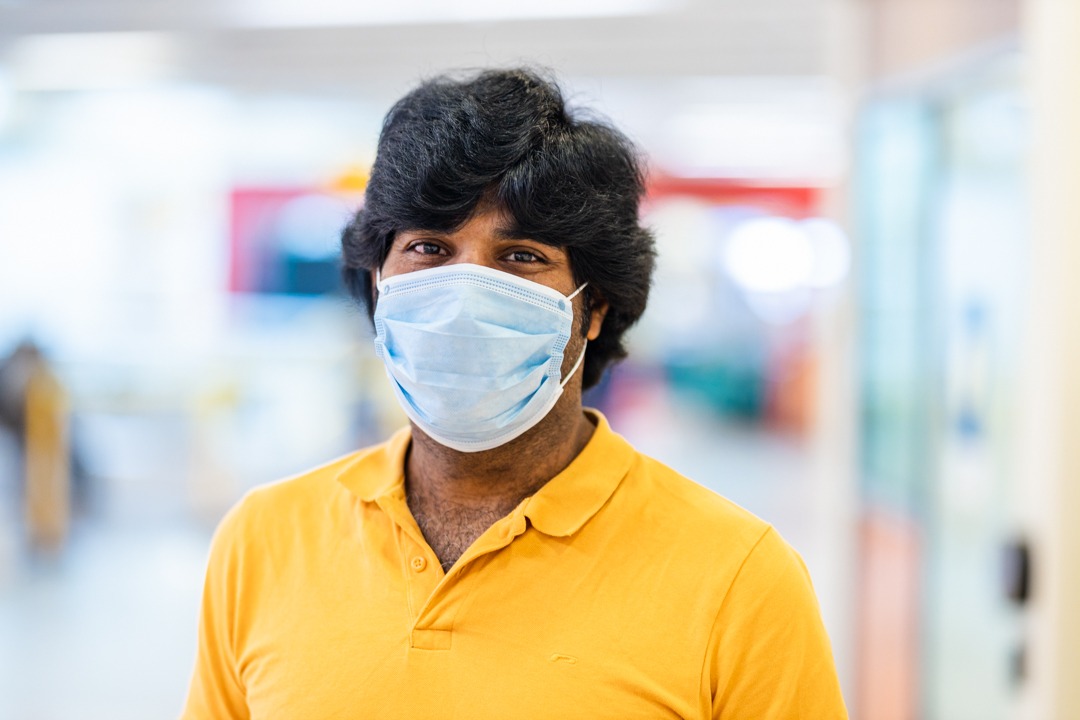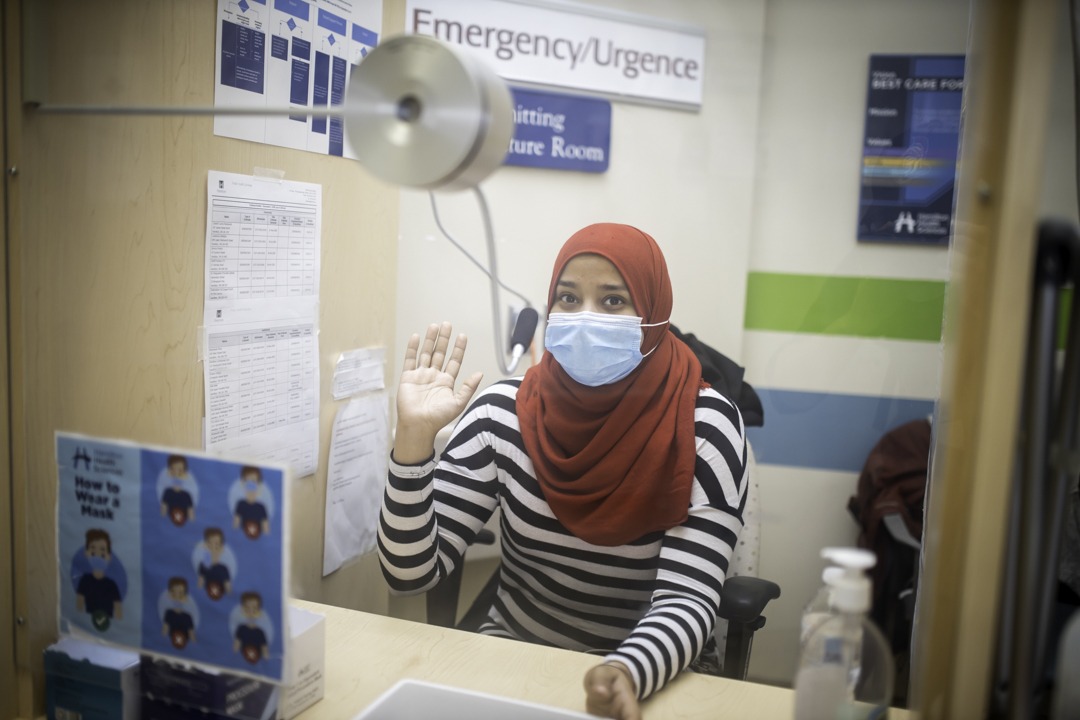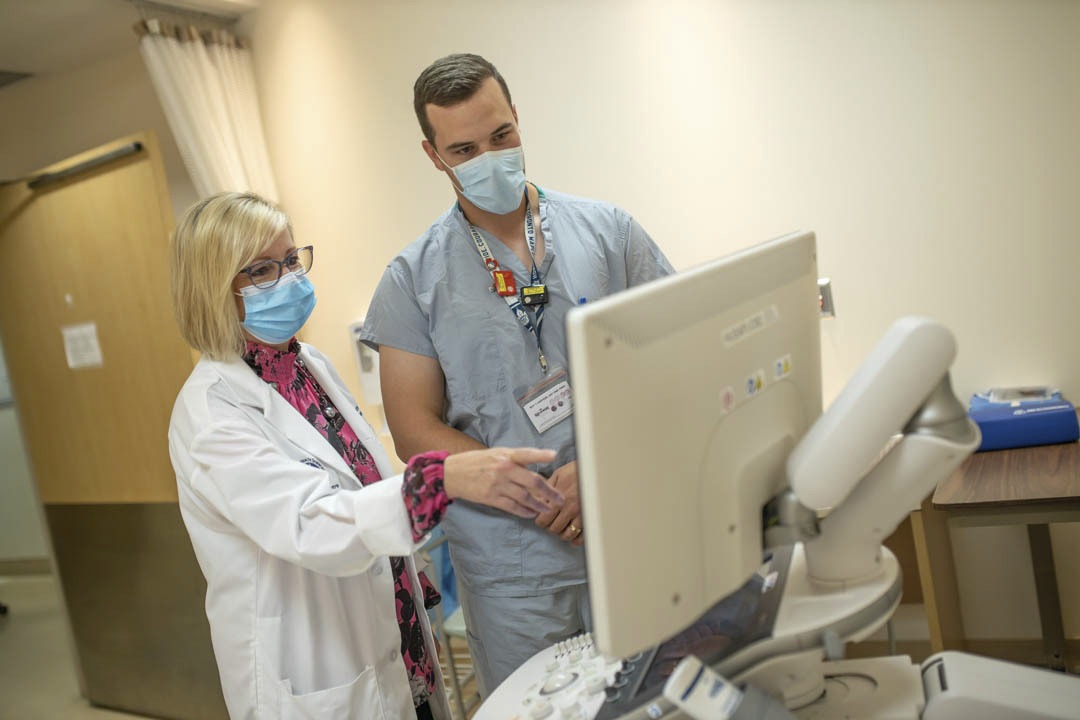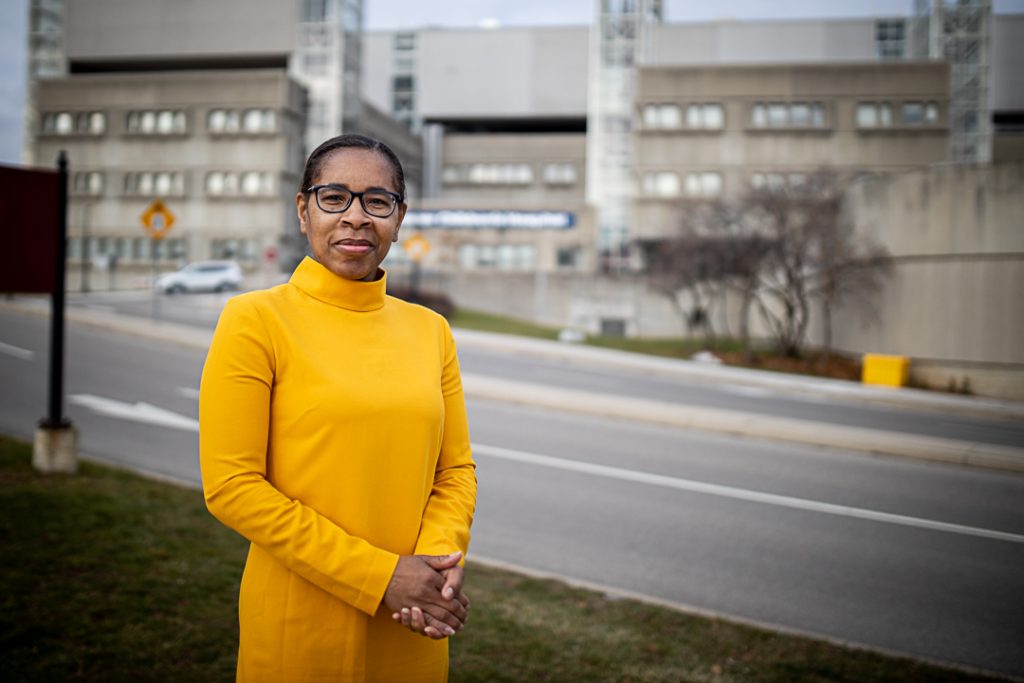
Going beyond the call of duty
Leona Stewart has been a switchboard operator for over 20 years, fielding hundreds of calls per day at Hamilton Health Sciences (HHS).
If you’re picturing Leona sitting in front of a vertical panel loaded with phone jacks, think again. HHS switchboard operators work at computers, answering calls from across the region and beyond. They cover the entire HHS hospital system made up of many sites: Hamilton General Hospital, St. Peter’s Hospital, the Juravinski Hospital and Cancer Centre, McMaster University Medical Centre, Ron Joyce Children’s Health Centre, McMaster Children’s Hospital, the Regional Rehabilitation Centre, the West End Clinic/Urgent Care Centre and West Lincoln Memorial Hospital.
More than answering calls
Switchboard operators also manage several additional HHS services. These include paging services, alarm monitoring, emergency code dispatching, the physician on-call roster, the regional physician answering service and the after-hours information desk.
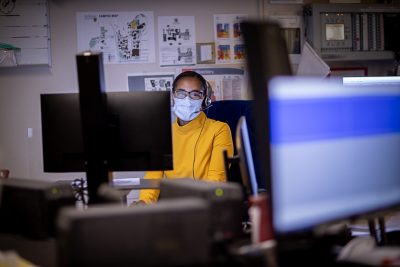
“The title switchboard operator really doesn’t do the position justice because it involves so much more than answering calls,” says Leona. “We’re a multi-site, multi-specialist paging service that’s the first point of contact for HHS and the central hub for all hospital emergency situations. We handle sensitive patient issues and support staff and physicians requiring assistance, whether it’s a surgeon needing another specialist during an operation or a department needing immediate respiratory therapy. We provide them with what they need so that they can be at their best when it counts.”
“The job keeps me grounded.”
The switchboard team consists of 25 full-time, part-time and on-call operators working 24/7 including all holidays. New hires go through six weeks of intensive training, but it takes about one year to really learn the ropes.
“It’s an extremely fast-paced environment,” says Leona, who is well-known throughout HHS for her calm disposition and grace under pressure.
The busyness and variety are among Leona’s favourite parts of the job. So is helping HHS staff and members of the public connect to the people, information and departments they need.
“It’s really satisfying to help people and make a difference in their lives,” says Leona. “The job keeps me grounded. I’ve learned not to judge people because you don’t know their stories.”
Busier since COVID-19
Since March, Leona’s job has become even busier due to COVID-19 with additional calls from members of the public wondering if it’s safe to visit the hospital. Some want to visit an emergency department but are hesitant. Others aren’t sure if they should attend their scheduled hospital appointments, like CT scans or MRIs.
“It’s important for people to know that hospitals are safe places for patients to visit.”
“Those COVID-related calls always increase right after a big news story, like the recent announcement that Hamilton and the rest of the province were entering the Grey lockdown category,” says Leona.
“We become their calm in the storm by making them feel safe and reassured enough to seek help. It’s important for people to know that hospitals are safe places for patients to visit. I explain to callers that COVID patients are isolated to certain parts of the hospital. HHS also has safety precautions in place for patients visiting our hospital sites that includes screening, enhanced cleaning, masking requirements and physical distancing measures. We want patients to keep their appointments and get the help they need.”

